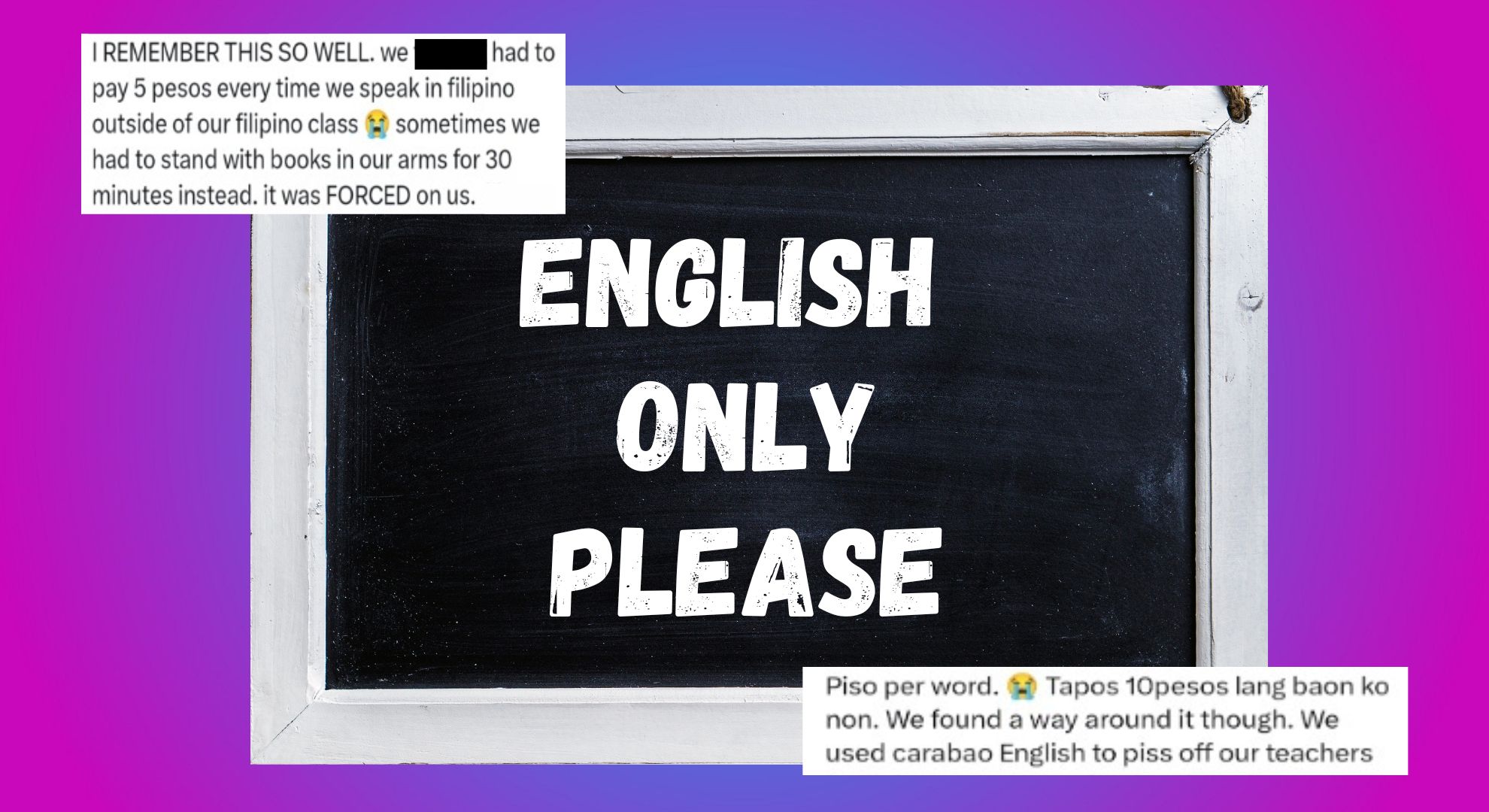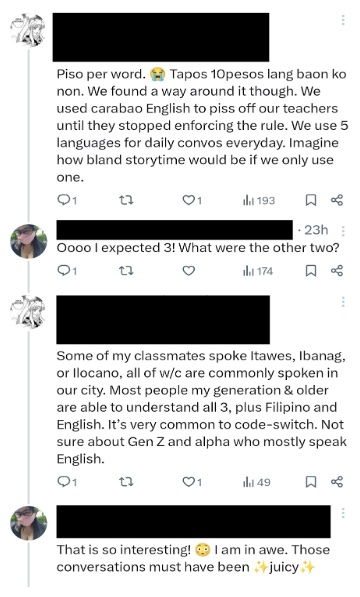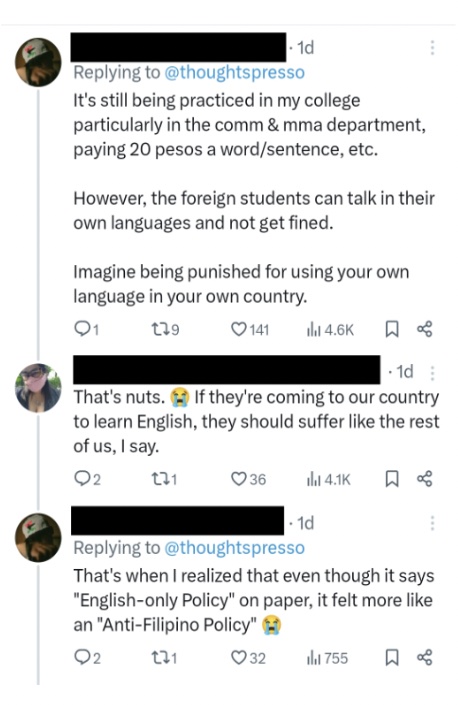Undoubtedly, Filipinos are recognized for their fluency in English, as it is one of the most spoken languages in the country. However, is it really because we love the language or we were or are merely conditioned to learn it?
In a tweet by a social media user in X (formerly known as Twitter), the OP recalled how as a student, they were fined by teachers for speaking the native language (Filipino) inside the classroom in accordance with the “English only policy” in improving the English literacy of Filipino students. This tweet is actually a quote tweet from another user sharing their frustration with some Americans questioning his fluency in speaking English. The user then responded with “Uh, thanks? Your English is alright too. Well, we were a US colony, so English was forced upon us,” reminding the foreigners that most Filipinos are “good in English” solely because of Western influence from the colonization period.
The tweet points out that English is almost the default language for Filipinos because most are forced to use it. “So why are Filipinos English-fluent? Eh, because we needed to be to survive. That isn’t entirely a good thing. We’ve both opened up ourselves to global opportunities and simultaneously boxed ourselves in. 44% of OFWs work in elementary occupations.”
One social media user pointed out that this colonized mentality exists in the country because we Filipinos are forced to speak a foreign language because this “will get you job faster” as imposed in our society.
colonization and "speaking english will get u a job faster" mindset that my family imposed upon me (they too were educated like that) is why i cant roll my R's like my peers and why i think in english
tuod piso ra jud toy pabayran sa amoa pag Grade 2 pero tawn sab ui https://t.co/oUOzxnqFcG
— The Corinthian's Dentist (@shudimamalikas) May 2, 2024
Reflecting on the experience of being fined for speaking Filipino, replies under this tweet poured in, with many sharing the same experience.
This seemingly collective experience shows how this enforcement can be both empowering and damaging, with some seeing an improvement in their English literacy, while some gaining substandard knowledge of many in Filipino and other native languages.
Other POP! stories that you might like:
Local thrift shop in Cubao forced to deny selling ‘ukay dogs’ following viral post
Hot Air Balloon Festival and Airshow set to soar over Albay this weekend
Licensure exam takers react to PRC’s updated list of approved calculators
Singer Querubin Llavore goes viral again, this time due to funny haircut experience
Daniel Radcliffe voices disappointment over J.K. Rowling’s transgender comments







